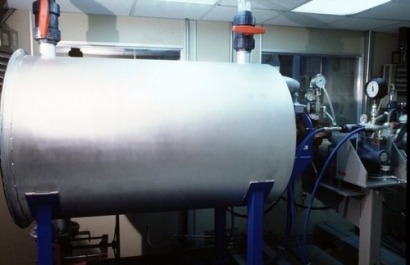
The Kroger Company has unveiled a clean energy production system that will convert food that can’t be sold or donated into clean energy in order to power the company’s Ralphs/Food4Less Compton distribution centre in California, USA.
The system is based on an Anaerobic Digestion (AD) waste to energy converter which will process more than 55,000 tons of organic food waste into renewable energy annually while providing power for the 650,000 square foot distribution centre. The processing of the food waste will also reduce area truck trips by more than 500,000 miles each year.
The Kroger Recovery System uses a sophisticated process to convert the carbon in organic material into renewable methane
“We are committed to finding solutions for food waste and clean energy, and we believe this is a meaningful step forward,” said Rodney McMullen, Kroger’s President and Chief Operating Officer. “Investing in
This project is a good business decision for Kroger and, most importantly, an extraordinary opportunity to
benefit the environment. We want to thank Governor Brown and his team at CalRecycle and CalEPA, the City of Compton, the SCAQMD, and most importantly the team at FEED for making this renewable energy project a reality.”
The AD system processes unsold organics and onsite food processing effluent into renewable biogas which is then turned into power for onsite operations. The whole process is conducted in an enclosed, oxygen free environment thereby taking up less space and generating no odours. The plant will provide enough renewable biogas to offset more than 20 percent of the energy demands of the distribution centre. Along with the use of more than 150 zero emission forklifts, the plant will make the centre one of the greenest and most efficient in Compton, thereby promoting the city as a leading sustainable community.
Further information:

